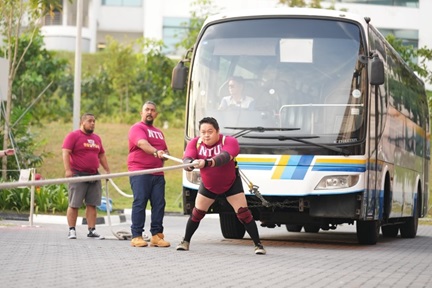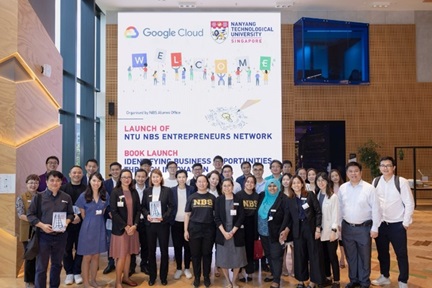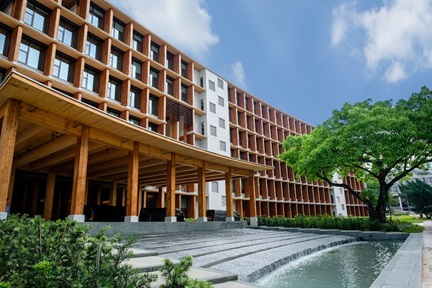Unflappable and unstoppable: SMEs adapt and pivot to survive
Prof Boh Wai Fong said that whether it's changing their product mix or moving into an e-commerce space, businesses need a consumer-oriented approach.
When the first signs of a global pandemic emerged in early 2020, businesses in Singapore recalled their past experience with the Sars outbreak in 2003 and braced for possibly a few months of border closures and disruptions.
Few of them could have predicted that the impact would end up being far worse, with worldwide country lockdowns, manpower shortages due to shut borders, supply chain disruptions and month after month of restrictions on business operations.
More than a year on, Singapore firms are facing a new reality. The Covid-19 virus is no longer a short-term threat that can be contained or eradicated, even with the plethora of vaccines being rolled out.
Instead, it is expected to become endemic, and the current disruptions attributed to the pandemic will become more regular occurrences.
No longer can companies tackle manpower shortages, business restrictions and a dearth of overseas visitors with contingency plans alone; they must treat them as business risks that could rear their heads at any time.
For some firms, this has meant that their original businesses cannot continue operating the way they have for years, or even decades. They have not thrown in the towel, however.
Rather, they have poured their energies and resources into new ventures and innovation - some of which, like technology adoption, build on the existing businesses, while others have required bigger steps out of their comfort zones.
"It doesn't have to mean giving up on the business built so far," said Kenneth Goh, assistant professor of strategic management at the Singapore Management University's Lee Kong Chian School of Business (LKC).
"But think about redeploying assets and capabilities in a different way," added Asst Prof Goh, who also serves as interim academic director of the Business Families Institute.
One example is travel agency EU Holidays. It not only came up with new offerings including yacht staycations and local tours to Pulau Ubin and kelongs (offshore fishing platforms) to woo domestic tourists, but also formed a joint venture company with a car dealer to import continental cars.
It is now exploring other business ideas related to food and beverage and sports, as the company gets "more aggressive" in trying to pivot the business this year in case travel remains suspended beyond the end of 2021, said EU Holidays' managing director Alan Ang.
Academics that The Business Times spoke to noted that there may be a trend towards localisation, compared to the progression of globalisation efforts pre-pandemic, as SMEs become more cautious of the volatility of global supply and distribution chains and exchange rates.
The Covid-19 crisis could be a good opportunity to self-diagnose and identify strengths to build on as well as weaknesses to consider, they agreed.
For example, SMEs are often limited by family legacies, if family-run, or limited resources, compared to multinational corporations.
Technology's ability to empower or monitor and constrain should be a consideration for SMEs planning their next move, some academics added.
Boh Wai Fong, a professor at the Nanyang Technological University's Nanyang Business School, said that whether it's changing their product mix or moving into an e-commerce space, businesses need a consumer-oriented approach.
This may even mean pivoting away from or repurposing traditional areas or modes of business, if demand for them has fallen because of the pandemic, she said.
Not all of the companies The Business Times spoke to have made profits in their new ventures, however. That would be a tall order indeed, in the current economic climate.
But with their perseverance and willingness to think out of the box, these companies' efforts have kept them afloat and most of their teams together, positioning them to capture the opportunities that will surely return as the world adjusts to the new normal.
While adaptation may require some investment, not all change needs to be extreme, suggested David Gomulya, an associate professor of strategic management at LKC.
Even one or two pandemic practice drills a year could improve employees' efficiency and ensure that they remain up-to-date on practices, he said.
"There's some kind of trade-off between not preparing and preparing too much... a Goldilocks solution, if you will," he added.
Source: The Business Times













/enri-thumbnails/careeropportunities1f0caf1c-a12d-479c-be7c-3c04e085c617.tmb-mega-menu.jpg?Culture=en&sfvrsn=d7261e3b_1)

/cradle-thumbnails/research-capabilities1516d0ba63aa44f0b4ee77a8c05263b2.tmb-mega-menu.jpg?Culture=en&sfvrsn=1bc94f8_1)

7e6fdc03-9018-4d08-9a98-8a21acbc37ba.tmb-mega-menu.jpg?Culture=en&sfvrsn=7deaf618_1)






